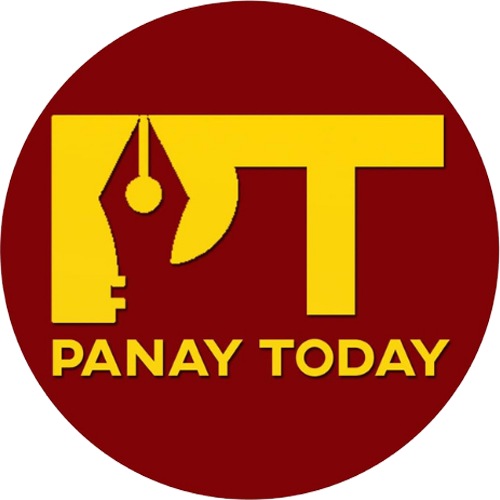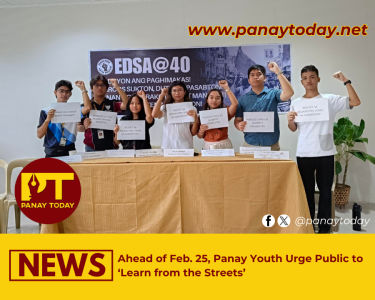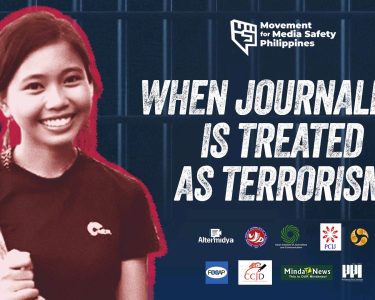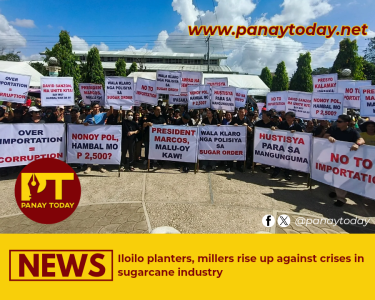Boracay Island – Twenty-nine volunteer members of the Humanitarian Mission composed of teachers, students and scientists were not permitted to enter the island of Boracay yesterday to bring food relief to the affected residents of the closure.
The humanitarian mission is scheduled from June 29 to July 1 and is the 3rd of the series of missions organized by Friends of Boracay, Rise Up Aklan and We Are Boracay in partnership with the Boracay Christian Church, Bloomfield Integrated Academy and Boracay Island Global Academy. The beneficiaries of the mission are members of We Are Boracay, an alliance of residents and workers of the island.
The mission aims to conduct relief distribution and needs assessment analysis to the residents after two months of the closure following the President’s declaration of the rehabilitation of the island for six months.
According to Kim Sin Tugna of Rise Up Aklan, the food assistance is donated to address the hunger situation of the residents due to loss of livelihood and limited assistance from the government itself.
“Two months after the closure, many residents are feeling the pangs of hunger especially those who remained in the island who are relying on the meager support from the government. The reliefs from private donors could have provided the gap in the food supply for the locals who were displaced from their work,” he added.
Tugna said their team was barred by the Boracay Security Committee.
Rise Up Aklan, headed by Tugna has a standing agreement with the DSWD Regional Office VI Director Rebecca Geamala to conduct enlistment of victims for Disaster Assistance Family Access Card (DAFAC), a requirement needed to provide proper assistance to victims of closure.
Olive Abanera, We Are Boracay coordinator was saddened by the food blockade.
“We have been experiencing hunger for two months now and this food blockade only exacerbates our dire situation,” she said.
Abanera added that their efforts as victims to provide assistance to their hungry members were treated as a security threat by the security committee.
“Is it wrong to feed the hungry? Is it wrong nowadays to struggle for our survival? Why do they consider humanitarian volunteers as security threats? With hundreds of armed police and military personnel deployed in the island, are they hiding something that is why they are blocking our mission volunteers?” questioned Abanera.
“We have been conducting this mission for two rows already and this is the only time our volunteers were blocked. We have followed the protocol and informed the inter-agency task force days ahead of the mission and we were not even informed of the reason of the blockade,” Abanera added.
Tugna also questioned the capacity of the task force to block the mission team.
“This is a legitimate mission and the people are expecting their rice subsidies from their donors. The blockade only highlights what seems to be a “de facto martial law” happening in the island,” said Tugna.
“This is a crime against humanity considering that the island is under a state of calamity and under international protocols, food assistance is highly encouraged during crisis situation,” added Tugna.
“This also violates the freedom of assembly and right to redress and grievance as enshrined by the constitution.”
Feny Cosico, the team leader for the scientist group expresses dismay and outrage over the inhumane treatment of the Boracay security group for the food blockage.
“The scientists have volunteered to take part in the Humanitarian Mission by means of facilitating the Needs Assessment Analysis. This activity is crucial in having an in-depth assessment of the people’s needs apart from providing them their basic needs as food, water and shelter.”
She added that “we want to know their perception and aspiration that have been deprived from them at the start of rehabilitation. We support the rehabilitation of the island but not at the expense of the people. They should be the foremost consideration in the rehabilitation activities as there are the permanent dwellers of the island.”
The scientists also question the comprehensive rehabilitation plan.
“At this point, we see no clear comprehensive rehabilitation plan that includes the participation of all stakeholders specifically the locals who were treated inhumanely with the food blockade of the security. The restoration of the ecological integrity of the island is nowhere near its completion with its target date on October. We have yet to see a comprehensive plan that does not only cover the removal of illegal, but it must include the restoration and preservation of its natural ecosystem.” /PT




